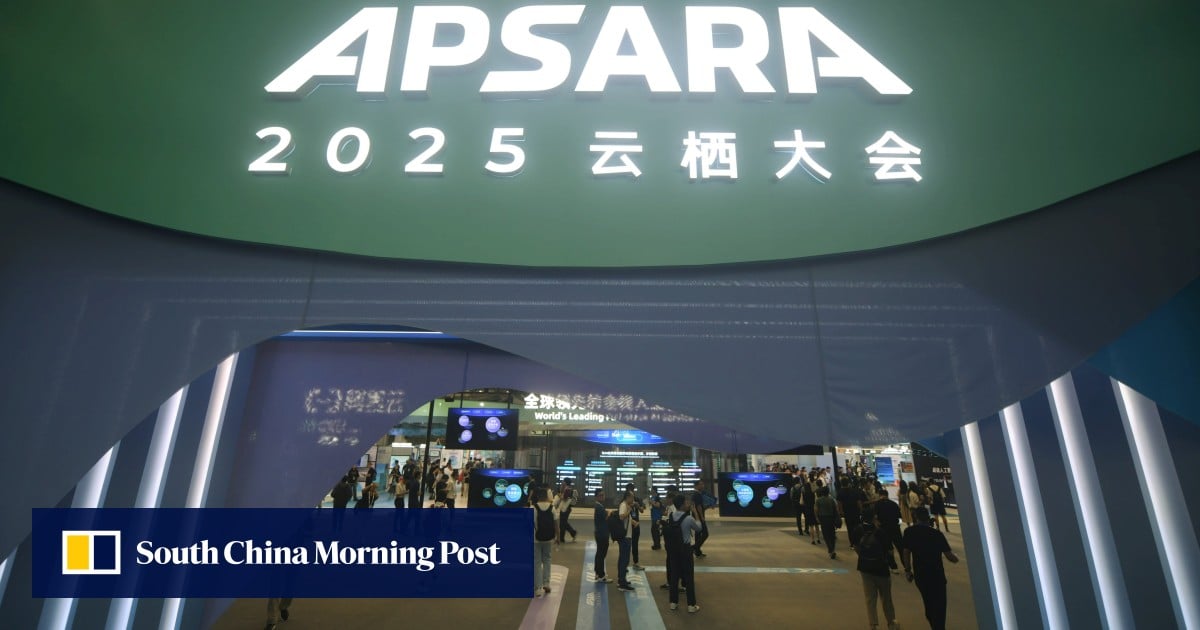China’s full artificial intelligence technology stack was on display at this year’s Apsara Conference, the annual gathering of Alibaba Cloud users and developers held every September in Hangzhou, capital of eastern Zhejiang province.
Downpours on Wednesday failed to keep crowds away following an opening speech by Alibaba CEO Eddie Wu Yongming, where he announced new AI infrastructure spending beyond the originally promised US$53 billion, sending the company’s shares to a four-year high.
Crowds swelled on the two remaining days despite temperatures reaching 35.5 degrees Celsius, as Alibaba Cloud users, developers and investors sought to get a first-hand glimpse of the technologies driving the company’s ambition to become a “leading global full-stack AI service provider”.
These included AI hardware, applications and foundational models – the respective themes of this year’s exhibition halls – which totalled 40,000 square meters in area. Alibaba owns the Post.
According to Beijing-based tech analyst Poe Zhao, who attended the conference, this year’s exhibits were centred around AI applications instead of large language models, which was last year’s focus. “My main takeaway was that large language models have sort of become a foundational infrastructure,” he said.
In the AI applications hall, companies from different industries showcased their AI agents – AI systems that autonomously carry out tasks – built on Alibaba’s open-source Qwen family of models.
